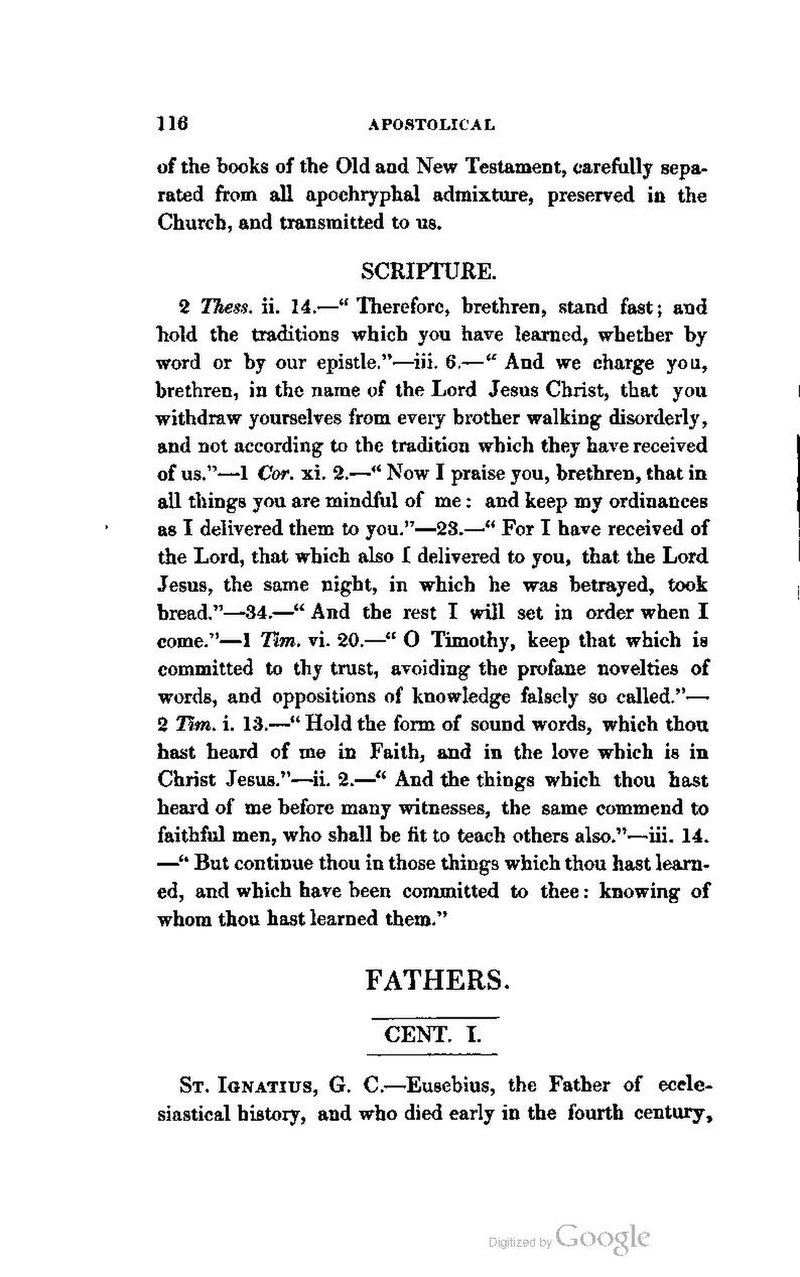of the books of the Old and New Testament, carefully separated from all apochryphal admixture, preserved in the Church, and transmitted to us.
SCRIPTURE.
2 Thess. ii. 14.—“ Therefore, brethren, stand fast; and hold the traditions which you have learned, whether by word or by our epistle.”—iji. 6.-“ And we charge you, brethren, in the name of the Lord Jesus Christ, that you withdraw yourselves from every brother walking disorderly, and not according to the tradition which they have received of us.”—1 Cor. xi. 2.—“Now I praise you, brethren, that in all things you are mindful of me: and keep my ordinances as I delivered them to you.”—23.-“ For I have received of the Lord, that which also I delivered to you, that the Lord Jesus, the same night, in which he was betrayed, took bread.”—34.—“And the rest I will set in order when I come.”—1 Tim. vi. 20.—“ O Timothy, keep that which is committed to thy trust, avoiding the profane novelties of words, and oppositions of knowledge falsely so called.”. 2 Tim. i. 13.—“Hold the form of sound words, which thou hast heard of me in Faith, and in the love which is in Christ Jesus.”—ii. 2.-—“ And the things which thou hast heard of me before many witnesses, the same commend to faithful men, who shall be fit to teach others also.”-iii. 14. -“But continue thou in those things which thou hast learned, and which have been committed to thee: knowing of whom thou hast learned them."
FATHERS.
CENT. I.
St. IGNATIUS, G. C.-Eusebius, the Father of ecelesiastical history, and who died early in the fourth century,
